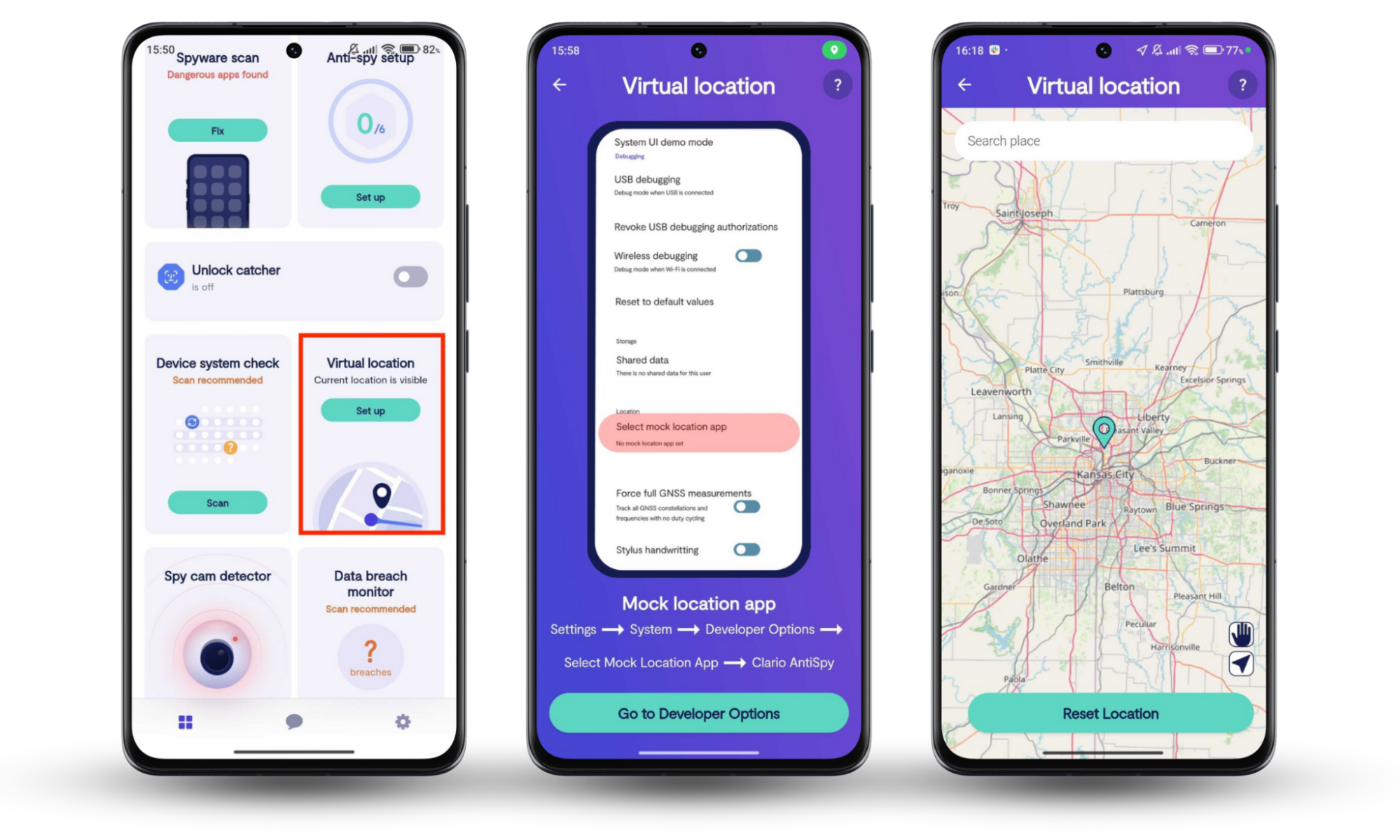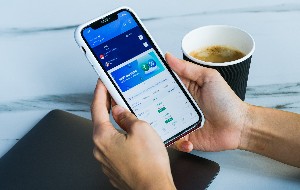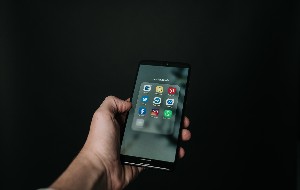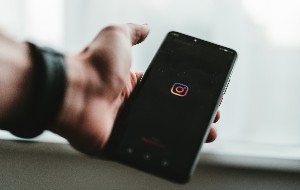Table of contents
- How can you be tracked online when using a VPN?
- 1. Tracking cookies
- 2. Digital fingerprinting
- 3. Doxxing
- 4. DNS leaks
- 5. Revealing information online
- 6. Logging into your accounts
- How to protect yourself from tracking when using a VPN
- 1. Private search engines
- 2. Privacy-oriented browsers
- 3. Private messengers
- 4. Reducing your online footprint
- 5. Reputable antivirus and antimalware software
- 6. Avoiding free VPNs
- 7. Use the kill switch function on a VPN
- Can the government track you with a VPN?
- Can Google track you if you are using a VPN?
- Сan law enforcement track VPN?
- Conclusion
How can you be tracked online when using a VPN?
Firstly, what is a VPN? A VPN works by routing your internet connection through a private network rather than straight through your Internet Service Provider (ISP). This encrypts your traffic, hides your IP address, and helps to keep your activity private.
However, there are several ways that you can be tracked when using a VPN, including:
- Tracking cookies
- Digital fingerprinting
- Doxxing
- DNS leaks
- Revealing information online
- Logging into your accounts
1. Tracking cookies
Tracking cookies are small files that remember information about you as you visit websites on the internet. While they’re usually used for advertising, cookies can be used to track you across different sites and platforms. Unless you clear your cookie cache whenever you browse the internet, it’ll be possible for someone to trace your activities.
2. Digital fingerprinting
Digital fingerprinting, or browser fingerprinting, is a method that more invasive websites use to identify you, even if you’re using a VPN. And it’s one of the primary ways that VPNs can be traced. By storing information about your browser version, IP address, screen resolution, and more, the website can create a unique identifier that helps them track you online.
3. Doxxing
Doxxing, short for “dropping documents,” is when someone leaks identifiable information about you. People can gather information about you from social media, public records, and forums, and work out your real name, address, and more. If someone can find enough information about you online, they might leak it online, revealing your identity.
4. DNS leaks
A Domain Name System (DNS) leak occurs when your internet traffic doesn’t get routed through your VPN properly. Because the information “leaks” out of your VPN, your Internet Service Provider (ISP) and others can track your activities. This compromises your privacy and defeats the entire purpose of using a VPN.
5. Revealing information online
If you actively share personal information on forums, social media, or elsewhere, you’ll be easily traceable—even if you use a VPN. The more information you share, the easier it is for websites, advertisers, and scammers to build a digital profile of you and trace your activities.
6. Logging into your accounts
Logging into certain accounts and then browsing the internet can compromise your privacy. For example, if you’re signed into your Google account while you browse, Google will be able to track your activities and share this information with third parties. The best way to avoid this is by setting up anonymous accounts.
How to protect yourself from tracking when using a VPN
To protect yourself from tracking when using a VPN, use privacy-oriented software, ensure that your VPN has DNS leak protection, and use the built-in kill switch to prevent your devices from accessing the internet outside of the VPN connection.
Here’s seven things that will protect your privacy while using a VPN:
- Private search engines
- Privacy oriented browsers
- Private messengers
- Reducing your online footprint
- Reputable antivirus and antimalware software
- Avoiding free VPNs
- Use the kill switch function on a VPN
Clario Anti Spy is an anti-spyware solution for iPhone and Android devices. It provides various features—such as an Anti-spy setup—that guides you through everything you need to do to protect yourself against stalking, spying, and tracking. If you're on an Android, you can also mask your location to preserve your anonymity online.
Here's how to mask your location on Android with Clario Anti Spy:
- Download Clario Anti Spy and subscribe to create an account.
- Tap Set up under Virtual location.
- Follow the steps to mask your location.

Have trouble using Clario Anti Spy? Just tap the Messages icon at the bottom to receive real-time human assistance 24/7.
1. Private search engines
Private search engines can minimize how much people can track your activities. They do this in the following ways:
- No personalization. Private search engines generally won’t collect personal information about you, like your IP address, search queries, or browsing history. This means it’s harder for third parties to build a profile for you.
- No tracking cookies. Private search engines often block or limit the use of tracking cookies. Without these, it’s much harder for websites to target you with personalized adverts.
- Encrypted search traffic. Most private search engines prioritize HTTPS encryption. This means that they won’t let you enter websites without a secure connection, helping to protect your data.
2. Privacy-oriented browsers
Privacy-oriented browsers include several built-in features that protect your privacy while you browse online, including:
- Tracker blockers. Privacy browsers prevent tracking cookies from being stored on your devices. They also prevent or restrict tracking scripts, advertising trackers, and social media trackers.
- Ad blockers. Most privacy browsers have built-in ad-blockers that prevent intrusive adverts. This helps protect your privacy because many adverts contain embedded trackers.
- Customizable privacy settings. Many privacy-focused browsers let you change privacy settings and add privacy extensions to further protect yourself online. For example, they may let you disable location tracking and block specific scripts from running when you visit websites.
3. Private messengers
Some non-encrypted messengers (like Facebook and Instagram) will analyze your conversations and send you targeted advertisements based on what you talk about. Private messengers provide end-to-end encryption over your conversations to prevent this from occurring.
Many private messengers also use secure communication protocols that prevent your messages from being intercepted and tampered with.
Finally, most private messengers will include features like self-destructing messages, no message logging, and in-depth user control over data. Altogether, these features help protect your privacy from prying eyes.
4. Reducing your online footprint
When you use the internet, you leave digital traces behind that can be used to identify you. The more you do, the easier it is for people to work out who you are, track your activities, and send you invasive adverts. Reducing your digital footprint makes it harder for these people to trace you.
VPNs work by encrypting your internet traffic, but they can’t hide the information you willingly spread on the internet.
Here’s what you can do to minimize your digital footprint:
- Limit the amount of information you post to social media (including how much personal information you provide on your profiles)
- Manage your privacy settings so that people can’t see your personal information
- Limit how much data third parties can collect by using privacy-oriented software and opting out of data collection practices
- Delete unused accounts.
5. Reputable antivirus and antimalware software
Antivirus and antimalware software can help protect your privacy and security in several ways. The main way is by monitoring your system in real-time and blocking suspicious programs that could track your behaviors.
Powerful antispy software like Clario Anti Spy includes several additional features to boost your privacy. For example, Clario Anti Spy provides 24/7 data breach monitoring, jailbreak/root detection, spyware scanning, and location masking (Android only).
Altogether, this adds another layer of protection to defend you against online tracking and other threats to your privacy.
6. Avoiding free VPNs
Free VPNs can be a tempting choice if you’re looking to save money. Unfortunately, they’re almost always less safe and less effective.
Many free VPN services make money by selling your personal information to third-party advertisers and marketing agencies. This defeats the entire purpose of using a VPN since none of your information is private or encrypted.
Worse, some free VPN software actually inject advertisements into your browser and compromise your system’s security.
To ensure your privacy while using a VPN, use a reputable one. Check our blog on the best VPN providers to choose the best option. In this blog post, we compare security, speed, and pricing.
7. Use the kill switch function on a VPN
A VPN kill switch prevents your data from being sent over an unencrypted connection. Without a kill switch, your device will usually access the internet as usual, meaning your connection is no longer private.
Kill switches prevent this from occurring. If your VPN becomes unstable, the kill switch blocks your device from accessing the internet. This prevents your activities from being exposed outside of the secure VPN tunnel.
Note
Not all VPN services provide a kill switch feature—so make sure to research this before deciding which one to invest in.
Can the government track you with a VPN?
In short, yes. There are several techniques the government can use to track your online activities, from metadata analysis to VPN server logs, ISP logs, malware, and government surveillance tools.
However, it’s highly unlikely that the government will use their resources trying to track a general VPN user. Instead, they’ll focus their efforts on key individuals that they suspect of malicious activities.
Can Google track you if you are using a VPN?
Yes. If you use Google’s services (like Gmail or YouTube) while you’re signed in, they can track everything you do. This is one of the main reasons that VPNs are traceable—because third parties are still collecting your personal information.
So, what does a VPN hide? VPN solutions encrypt your internet traffic, making it harder for certain entities (like your ISP) to track your activities. Still, they don’t prevent Google or other services from knowing who you are if you use your primary accounts.
Сan law enforcement track VPN?
In some cases, it might be possible for law enforcement to track your activity even though you’re using a VPN. While they won’t be able to see your live traffic directly, they may ask your VPN provider to give them information about your internet usage.
Further, it might be possible for law enforcement agencies to leverage sophisticated surveillance tools to track your activity. But this is highly unlikely to occur unless you are a suspect in committing a major crime.
Conclusion
While VPNs can add a layer of privacy and security, it’s important to understand their limitations. Keeping in mind how a VPN can be tracked will help you put additional security measures in place to protect your privacy. We recommend following the above-mentioned online security tips. Use a privacy-focused browser, private search engine, and safe browsing habits. Also, take advantage of Clario Anti Spy—not only can you use it to mask your location (if you're on an Android), but it also helps improve the general privacy and security of your mobile device.


